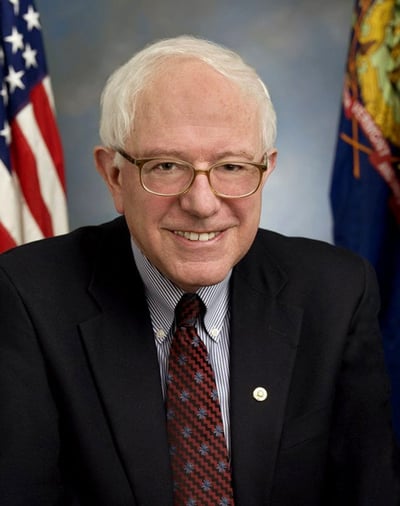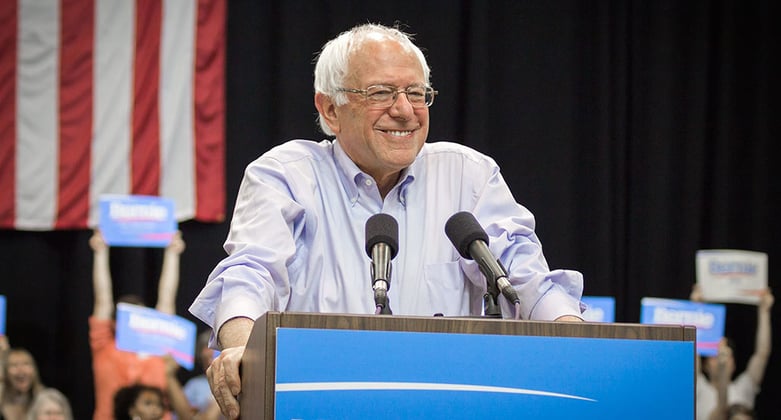Since Republicans pulled the American Health Care Act (which was supposed to “repeal and replace” Obamacare), former presidential candidate Senator Bernie Sanders is proposing a single-payer health care system that would be completely funded by taxpayers, creating a nationalized health system similar to that in Canada, the United Kingdom and other nations. Senator Sanders’ proposal could gain Republican support, according to columnists in both the New York Times and New York Post (news outlets that are polar opposites politically).
CNN reported on Tuesday, April 4, 2017 that Vice President Mike Pence was meeting with Republican leaders again and specifically the Freedom Caucus (who would not agree to vote for the ill-fated American Health Care Act) about replacing Obamacare on Monday evening, but there is no word yet on whether they are considering a single-payer system.
In our latest installment of the Trump and Obamacare series, the UMHS Endeavour looks at how a single-payer system would work and the benefits; and why Republicans might actually go for the idea. We will also examine what the prospect means for med students, current and future doctors and continuing with the Affordable Care Act versus adopting the single-payer system that Bernie Sanders has been advocating since last year’s presidential race.
Can Bernie Sell the GOP on ‘Medicare-for-All’?
 Senator Bernie Sanders (Independent, Vermont) immediately released a statement following the pulling of the Trump-Ryan health care bill from the House of Representatives. “Our job is to improve the Affordable Care Act, not repeal it,” Senator Sanders said in a press statement. “Our job is to guarantee health care to all people as a right, not a privilege."
Senator Bernie Sanders (Independent, Vermont) immediately released a statement following the pulling of the Trump-Ryan health care bill from the House of Representatives. “Our job is to improve the Affordable Care Act, not repeal it,” Senator Sanders said in a press statement. “Our job is to guarantee health care to all people as a right, not a privilege."
Senator Sanders clarified his sentiments on the CNN program “State of the Union” on Sunday, March 26, 2017. He told Dana Bash he plans to introduce legislation outlining a “Medicare–for-all” plan and will ask President Donald Trump to support it.
"Ideally, where we should be going is to join the rest of the industrialized world and guarantee health care to all people as a right," Sanders said. "That's why I'm going to introduce a Medicare-for-all, single-payer program."
So how exactly is Bernie Sanders going to win over Donald Trump and Republicans? By emphasizing the myriad troubles with the Affordable Care Act. He acknowledges that Obamacare is riddled with “serious problems. “Deductibles are too high," Sanders told CNN. "Premiums are too high. The cost of health care is going up at a much faster rate than it should."
"President Trump, come on board," Sanders continued. "Let's work together. Let's end the absurdity of Americans paying by far the highest prices in the world for prescription drugs."
CNN also reported a plan by California Democrats (along with organization Our Revolution) to push for a bill for a statewide single-payer health care system.
‘Republicans for Single-Payer Health Care’: NY Times
New York Times Op-Ed columnist David Leonhardt outlined why the GOP may actually go for single-payer health care in his article “Republicans for Single-Payer Health Care” on March 28, 2017.
Mr. Leonhardt noted that, since the “Trumpcare” bill was pulled, the GOP must choose between Obamacare and a single-payer system. He wrote that Republicans may actually choose the latter.
“That would be the height of political irony, of course,” Mr. Leonhardt wrote."Donald Trump, Paul Ryan and Tom Price may succeed where left-wing dreamers have long failed and move the country toward socialized medicine. And they would do it unwittingly, by undermining the most conservative health care system that Americans are willing to accept.”
He continued, “You’ve no doubt heard of that conservative system. It’s called Obamacare.”
The columnist pointed out that many Republicans actually like Medicare, the government-run health plan for seniors age 65 and up. He wrote, “Government health care programs turn out to be very popular, among both Democratic and Republican voters. Medicare is a huge success. Medicaid also works well, and some Republicans have defended it in recent weeks.”
The New York Times columnist also said that because legislation like Obamacare has actually helped many Americans, it is harder to “replace and repeal” it by nature.
“Americans are generally not willing to go backward on matters of basic economic decency,” the New York Times wrote. “Child labor isn’t coming back, and the minimum wage, Social Security and Medicare aren’t going away. Add Obamacare to the list."
A single-payer health care system, like most countries have, would essentially cover all Americans, with payroll deductions. Progressives like Senator Sanders will argue that it’s the fairest solution to covering all Americans, while many Republicans may balk at a single-payer system. Or will they?
NY Post on Why Trump Should Embrace Sanders’ System
The Republican-leaning New York Post, a New York City tabloid, published a column in favor of Trump approving the single-payer health care system.
In “Why Trump Should Embrace Single-Payer Health Care,” published on March 30, 2017, F.H Buckley also supports the exact same plan Bernie Sanders has always lauded.
The columnist criticized the GOP American Health Care Act that failed as “a plan only an accountant or a right-wing ideologue could love” because it would have left “20 million Americans without health care but cut expenses.”
The Post noted that President Trump promised during his campaign to adopt a health care plan “that would leave no one uninsured.”
“The simplest way to do this is universal health care, on the Canadian model, with a right of individuals to purchase a Cadillac plan on top of this out of pocket,” F.H. Buckley wrote.” And there are things that might be added, like removing the ban on reimporting drugs from Canada.”
Would Trump be able to sell the idea to his supporters? Yes, the columnist said, because the folks who elected Trump were not right-wing ideologues. “They were people who had lost or who feared they’d lose their jobs,” F.H. Buckley wrote. “Many were but a few steps away from the diseases of despair, social isolation, drug and alcohol poisonings and suicide that Anne Case and her husband, Nobel laureate Sir Angus Deaton, tell us have lowered the life expectancy of white Americans.”
F.H. Buckley also noted that adopting a single-payer system would be in line with controversial Trump adviser Steve Bannon’s views. “Steve Bannon has said the Republicans will become a party of ‘economic nationalism.’ No one has bothered to define this, but here’s one thing it must mean: We’re going to treat Americans better than non-Americans. We’re going to see that Americans have jobs, medical care and an enviable safety net.”
Benefits for Med Students, Current & Future Doctors
President Trump and Republicans embracing Senator Sanders’ vision for the single-payer health care system is a longshot indeed, but the thought alone underscores the need for some type of government-subsidized health coverage. Republicans argue that they don’t want the government to run the U.S. health care system, and this is a valid concern. However, while Obamacare suffers from serious flaws (especially the outrageous high deductibles few can afford), the fact that the “replacement” American Health Care Act could not pass among Republicans shows that even the GOP knows going back to the days of zero subsidization for health care would hardly be an effort to, as President Trump himself says, “make America great again.”
Nationalized health care, although funded by taxpayers, can still use private hospitals and doctors. Private insurance could and would still exist, as it does in Canada, the United Kingdom and elsewhere, but a single-payer system benefits med students and doctors because no one would be denied health care because of an inability to pay.
The website for Physicians for National a National Health Program notes a number of benefits with a single-payer system of interest to doctors.
- “Under a single-payer system, all residents of the U.S. would be covered for all medically necessary services, including doctor, hospital, preventive, long-term care, mental health, reproductive health care, dental, vision, prescription drug and medical supply costs.”
- “The program would be funded by the savings obtained from replacing today’s inefficient, profit-oriented, multiple insurance payers with a single streamlined, nonprofit, public payer, and by modest new taxes based on ability to pay. Premiums would disappear; 95 percent of all households would save money. Patients would no longer face financial barriers to care such as co-pays and deductibles, and would regain free choice of doctor and hospital. Doctors would regain autonomy over patient care.”
The site also outlines problems with continuing the Affordable Care Act (something both Democrats and Republicans should accept).
- “About 30 million people will still be uninsured in 2023, and tens of millions will remain underinsured.
- “Insurers will continue to strip down policies, maintain restrictive networks, limit and deny care, and increase patients’ co-pays, deductibles and other out-of-pocket costs.”
- “The law preserves our fragmented financing system, making it impossible to control costs.”
- “The law continues the unfair financing of health care, whereby costs are disproportionately borne by middle- and lower-income Americans and those families facing acute or chronic illness.”
(Top photo); UNLIKELY ALLIES? Senator Bernie Sanders’ progressive single-payer health care could gain Republican support. Photo: Wikimedia Commons
About UMHS:
Built in the tradition of the best US universities, the University of Medicine and Health Sciencesfocuses on individual student attention, maintaining small class sizes and recruiting high-quality faculty. We call this unique approach, “personalized medical education,” and it’s what has led to our unprecedented 96% student retention rate, and outstanding residency placements across the US and Canada. UMHS is challenging everything you thought you knew about Caribbean medical schools.

Scott is Director of Digital Content & Alumni Communications Liaison at UMHS and editor of the UMHS Endeavour blog. When he's not writing about UMHS students, faculty, events, public health, alumni and UMHS research, he writes and edits Broadway theater reviews for a website he publishes in New York City, StageZine.com.
















